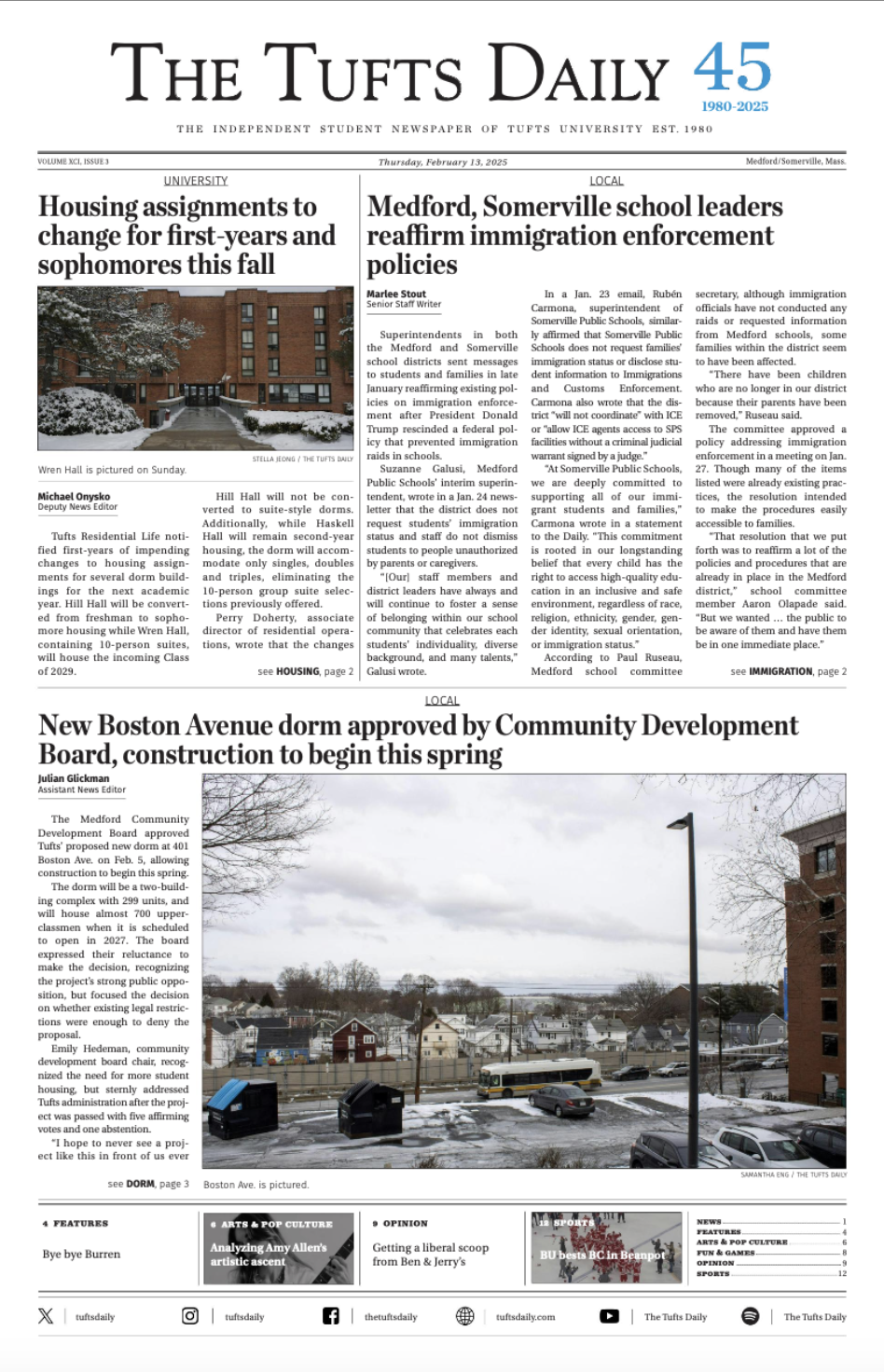This semester, Computer Science Professors Mark Sheldon and Bruce Molay have implemented a new system by which Data Structures (COMP 15) teaching assistants (TAs) and students can interact.
According to Sheldon, creating an effective TA system has become increasingly more important to keep up with the growth of the computer science department.
New TA System
Sheldon and Molay created small teams of undergraduate and graduate TAs and assigned each team to two or three lab sections. The students in those labs attend specified office hours for help and can thereby form more substantial relationships by interacting consistently with the same TAs.
The head of each team is experienced and can help guide the younger TAs, Sheldon said. This structure aims to foster a sustainable system of passing on knowledge, according to Teaching Fellow Vivek Bilolikar.
“We also meet on a week-to-week basis to see what worked well this week and what we need to change for future weeks,” Bilolikar said.
Previously, students sought help from TAs using Halligan Helper, a program created by Tyler Lubeck (LA '15), according to Sheldon. In Halligan Helper, which is still used for other classes, students explain their problems and input their location, and TAs are assigned to find the students and help solve the issues, he said.
Sheldon said that one of the major problems with Halligan Helper is that students receive aid from a different TA every time. The variations in grading and helping with labs, he said, inevitably leads to inconsistency.
While Sheldon acknowledged that Halligan Helper is convenient for students, Sheldon said that having TAs move directly from student to student hurriedly solving problems created a short term solution, but was counter-productive in the long term.
“They were getting their problems fixed faster, but learning less in the bargain,” Sheldon said.
Bilolikar, who is currently in his third year as an assistant, said that he has experience with both systems. He explained that quick problem-solving was ineffective in the long run and caused students to struggle in higher courses.
Sheldon explained that turning to an automated feedback system was not a feasible solution because every student’s code is different and should get individualized attention.
“A program is a document that communicates to a human reader your solution to a problem,” Sheldon explained. “In that sense, a computer program is more like an English paper with the added issue that it actually has to run on a computer.”
Challenges of Computer Science Expansion
The new TA system in COMP 15 addresses just one of the challenges faced by the growing computer science department.
Computer science is one of the most popular majors at Tufts and attracts an increasing number of students every year, according to 2014-2015 data collected by the Office of Institutional Research and Evaluation.
The two main issues the department is dealing with as the program grows are a lack of space and a shortage of professors, according to Sheldon.
“Tufts has an issue with space, like many colleges," he said. "As a department, because we’ve grown, we’re in multiple buildings. Because the department wasn’t so big originally, we don’t have any large teaching spaces.”
Professor Kathleen Fisher, chair of the computer science department, said that change is inevitably slow at such a large institution because of financial constraints.
“Universities have a really hard time coping with relatively fast growth because it’s really hard to move resources around a university,” she said.
Nonetheless, Fisher praised her colleagues for all their efforts to accommodate the spike in interest in computer science.
“People have been putting in Herculean efforts to make it work in the meantime, hoping eventually resources will come from the university. And they are starting to come,” she said.
Across the nation, universities are struggling to hire computer science professors, according to Fisher. She explained that because young professionals with only undergraduate degrees receive plenty of appealing job offers, not many have an incentive to earn a Ph.D., Fisher explained.
At Tufts, the Department of Computer Science currently has four open positions it is looking to fill, according to Fisher.
Computer Science major Raina Galbiati has felt the negative effects of the shortage of professors.
“Both Comp 20 and Comp 40, actually, filled up way before the freshmen even got to register and well before a lot of the sophomores did, which just isn’t ideal,” Galbiati, a junior, said.
Despite the shortage of resources, Fisher and Sheldon said that they are committed to teaching anyone who wants to learn computer science.
“Our classes are hard, but we want everybody to succeed and we firmly believe that everyone can succeed,” Fisher said.
Sheldon agreed.
“If you want to learn about computer science, I want you in my class,” he said.






